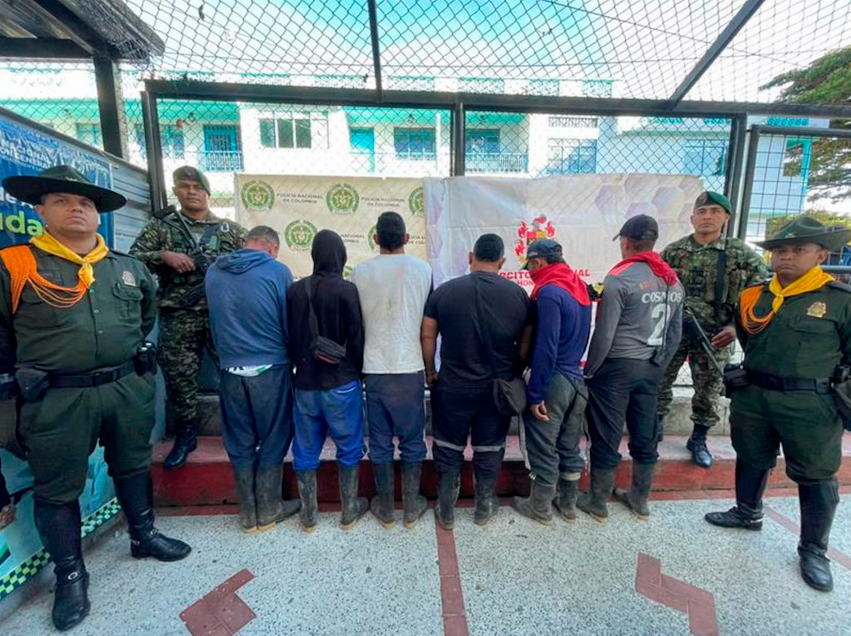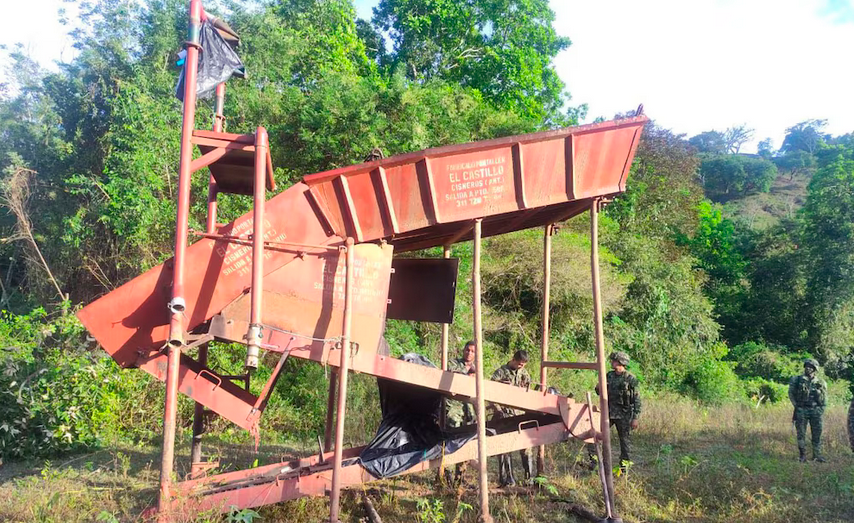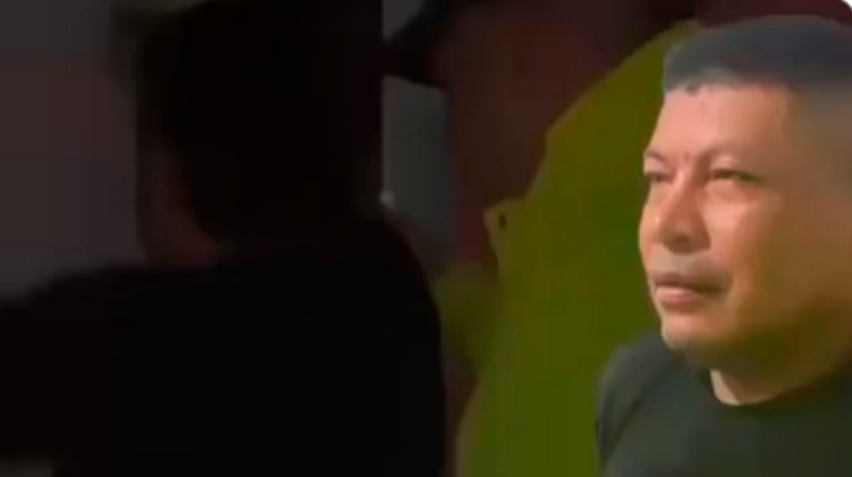During the course of his arrest, under Operation Spartan VII, officers seized a pistol, 16 USB drives, and cash.
The director of the National Police, General Carlos Fernando Triana Betancur, confirmed the capture of Bernardo Velasco Taquines, alias “AKT,” alleged financial chief of the Franco Benavides structure of FARC dissidents. He was reportedly in charge of exploring mines for the illegal extraction of gold in the department of Nariño.
This man is believed to have engaged in criminal activities for more than 25 years and was wanted by Colombian authorities for the crimes of kidnapping and aggravated conspiracy to commit a crime, in addition to promoting illicit activities in the rural area of Policarpa (Nariño).
During the arrest procedure, under Operation Spartan VII, officers seized a pistol, 16 USB drives, and cash.
In a video shared by the director, uniformed officers can be seen storming a house, after which Velasco Taquines is led out in handcuffs under custody.
Illegal Mining Complex in Tolima that Funded Dissidents with $2.3 Billion Pesos per Month
The environmental impact caused by illegal mining in southern Tolima has reached alarming levels, according to experts from the Tolima Regional Autonomous Corporation (Cortolima), who warned that recovering the affected areas could take up to 30 years due to the extent of the damage.
The removal of vegetation with heavy machinery and the dumping of waste have caused severe disruptions to biodiversity, air, and water quality—water that supplies both rural aqueducts and agricultural irrigation systems. Cortolima specialists confirmed the total loss of native plant species, irreversible landscape modifications, and alterations to the natural terrain, compromising food security and public health in rural communities.

Authorities dismantled an illegal mining complex operating along the banks of the Polecito creek, in the municipality of Ataco. This site, considered one of the main financial engines of the Ismael Ruiz front, a residual faction of the former FARC, produced 6,000 grams of gold monthly and generated revenues of around 2.3 billion pesos each month.
Of that amount, approximately 230 million pesos were allocated directly to the group’s finances, which engaged in intimidation, extortion, and threats against merchants, farmers, and transporters in Ataco, Planadas, Rioblanco, and Chaparral.
The operation—coordinated between the National Army, the National Police, the Colombian Aerospace Force, and Cortolima—led to the arrest of six individuals caught in the act while extracting gold with backhoes and classifiers without environmental or technical permits.

Major César Humberto González, commander of Rapid Deployment Battalion No. 13, stated that the seized machinery was valued at more than 1.12 billion pesos. The suspects were placed at the disposal of the Attorney General’s Office on charges of illegal exploitation of mineral deposits and other environmental crimes.
The dismantled infrastructure covered an area of approximately 350 square meters, where open-pit excavations were being carried out at least two different points within the municipality. Cortolima officials confirmed the use of two backhoes, a sluice-type classifier, and a mineral washing pool, which discharged waste directly into the Polecito creek, causing significant alterations to the aquatic ecosystem. Specialists reported severe soil erosion and persistent emissions of particulate matter.
Zulyana Sánchez, coordinator of control and surveillance at Cortolima, highlighted the seriousness of the environmental damage, stating: “The recovery of the area could take up to 30 years, given the magnitude of the environmental impact.” The use of heavy machinery and the dumping of waste have caused severe effects on biodiversity, air, and water quality, which supplies rural aqueducts and agricultural irrigation systems.

